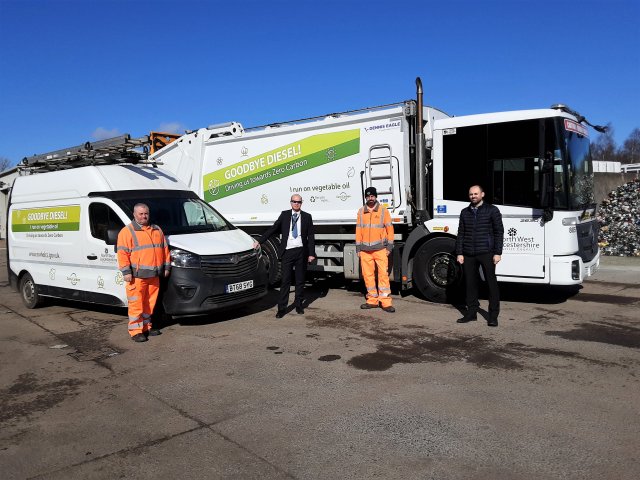Waste food oil now powers bin collections and street cleaning in North West Leicestershire.
Diesel is no longer the fuel of choice for North West Leicestershire District Council (NWLDC) vehicles after the authority swapped it for hydrotreated vegetable oil (HVO), a by-product from the food industry.
The move to the lower-emission fuel is part of NWLDC’s Zero Carbon plan to be carbon neutral by 2030.
The council’s entire fleet of 109 vehicles will now either run on waste food oil or battery electricity by 2024.
The council uses a mix of refuse collection vehicles, housing maintenance vehicles, medium sized panel vans and smaller vehicles alongside more specialist equipment, such as sweepers and mowers.
Residents and people driving the vehicles won’t notice a difference, but the move will reduce the authority’s emissions and achieve an estimated carbon saving of 1,221 tonnes of CO² over the vehicles’ lifetime. HVO reduces CO² emissions by up to 90% compared to diesel.
The council’s waste and recycling depot in Coalville will now be the filling up point for all the authority’s HVO-powered vehicles.
Petrol-powered cars in the fleet will be replaced with battery electric vehicles (BEVs), with charging points installed at key council locations to add to the 20 already installed in public car parks across the district.
Councillor Andrew Woodman, Portfolio Holder for Community Services at NWLDC said: “Removing diesel from our fleet is a great step on our Zero Carbon journey and allows us to quickly reduce our carbon footprint.
“We’re investing in zero or low emission vehicles and fuel for the future to lead the way across the district. It’s great to see our changing fleet take to the roads.”



